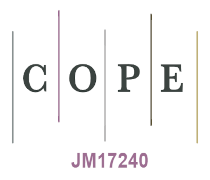Pracoholizm – istota, konsekwencje i uwarunkowania
DOI:
https://doi.org/10.18778/1427-969X.14.07Słowa kluczowe:
workaholism, personality and temperamental correlates of workaholismAbstrakt
The article reviews the theoretical concepts of workaholism as well as some empirical studies. It presents two approaches: workaholism as an addiction and workaholism as a fixed habit. The author discusses the consequences of a parent’s workaholism for family, relatives and children. The last part of the article presents the autor’s model of the personality and temperament correlates of workaholism: obsessive-compulsive tendencies, some features of narcissistic personality as well as high demand for stimulation.
Bibliografia
Burke R.J. (1999), It’s not how hard you work but how you work hard: Evaluating workaholism components, „International Journal of Stress Management”, 6, 225–240.
Google Scholar
Burke R.J. (2000a), Workaholism and divorce, „Psychological Reports”, 86 (1) 219–220.
Google Scholar
DOI: https://doi.org/10.2466/pr0.2000.86.1.219
Burke R.J. (2000b), Workaholism in organization: the role of personal beliefs and fears, „Anxiety, Stress and Coping”, v. 13, 53–64.
Google Scholar
DOI: https://doi.org/10.1080/10615800008248333
Burke R.J. (2006), Personality correlates of workaholism, „Personality & Individual Differences”, 40 (4) 1223–1233.
Google Scholar
DOI: https://doi.org/10.1016/j.paid.2005.10.017
Frąszczak A. (2002), Pracoholizm, [w:] M. Strykowska (red), Współczesne organizacje – wyzwania i zagrożenia. Perspektywa psychologiczna, Wydawnictwo Fundacji Humaniora, Poznań, 211–234.
Google Scholar
Griffiths M. (2005), Workaholism is still a useful construct, „Addiction Research and Theory” 13 (2), 97–100.
Google Scholar
DOI: https://doi.org/10.1080/16066350500057290
Golińska L. (2005), Skala do badania zaabsorbowania pracą, „Acta Universitatis Lodziensis. Folia Psychologica”, 9, 17–29
Google Scholar
Golińska L. (2006), Pracoholizm małżonka i rodzica w percepcji i odczuciach współpartnera i dzieci, „Nowiny Psychologiczne”, 1, 47–54
Google Scholar
Golińska L. (2008a), Osobowościowe mechanizmy pracoholizmu, [w:] L. Golińska,B. Dudek (red), Rodzina i praca w z perspektywy wyzwań i zagrożeń, Wydawnictwo Uniwersytetu Łódzkiego, Łódź.
Google Scholar
Golińska L. (2008b), Pracoholizm – uzależnienie czy pasja, Difin, Warszawa.
Google Scholar
Kot U. (2008), Wpływ pracoholizmu rodziców na funkcjonowanie zadaniowe ich dzieci (nieopublikowana praca magisterska), Uniwersytet Łódzki.
Google Scholar
Killinger B. (2007), Pracoholicy. Szkoła przetrwania, Dom Wydawniczy Rebis, Poznań
Google Scholar
Lempke A. (2007) Wpływ pracoholizmu partnera na relacje z nim i jakość życia (nieopublikowana praca magisterska), Uniwersytet Łódzki.
Google Scholar
Ludew A. (2006), Wpływ pracoholizmu rodzica na zagrożenie pracoholizmem u dzieci i ich obraz własnej osoby (nieopublikowana praca magisterska), Uniwersytet Łódzki
Google Scholar
Mielczarek N. (2007), Osobowościowe i motywacyjne determinanty pracoholizmu (niepublikowana praca magisterska), Instytut Psychologii UŁ.
Google Scholar
Mudrack P. E. (2004), Job involvement, obsessive-compulsive personality traits and workaholic behavioural tendencies, „Journal of Organizational Change Management”, 17 (5), 490–508.
Google Scholar
DOI: https://doi.org/10.1108/09534810410554506
Mudrack P.E., Naughton T.J (2001), The assessment of workaholism : Scale development and preliminary empirical testing, „International Journal of Stress Management”, 8 (2), 93–111
Google Scholar
DOI: https://doi.org/10.1023/A:1009525213213
Ogińska-Bulik, N. (2009), Osobowość typu D. Teoria i badania, Difin, Warszawa.
Google Scholar
Paluchowski W.J., Hornowska E. (2003), Pracoholizm a system wartości i uwarunkowania temperamentalne, [w:] S. Witkowski (red.), Psychologiczne wyznaczniki sukcesu w zarządzaniu, Wydawnictwo Uniwersytetu Wrocławskiego, Wrocław, 297–321.
Google Scholar
Porter G. (2001), Workholism Tendencies and the High Potencial for Stress among Coworkers, „International Journal of Stress Management”, 8 (2), 147–164
Google Scholar
DOI: https://doi.org/10.1023/A:1009581330960
Robinson B.E. (1996), The psychosocial and familial dimensions of work addiction: preliminary perspectives and hypotheses, „Journal of Counseling & Development”, 74 (may/june), 447–452
Google Scholar
DOI: https://doi.org/10.1002/j.1556-6676.1996.tb01891.x
Robinson B. (2000), Workaholism: bridging the gap between workplace, sociocultural, and family research, „Journal of employment counseling” (march), vol. 37, 31–45
Google Scholar
DOI: https://doi.org/10.1002/j.2161-1920.2000.tb01024.x
Robinson B.E. (2001), Workaholism and family functioning: A profile of familial relationships, psychological outcomes, and research considerations, „Contemporary Family Therapy”, 23 (1), 123–135.
Google Scholar
DOI: https://doi.org/10.1023/A:1007880301342
Robinson B.E., Carroll J., Flowers C. (2001a), Marital estrangement, positive affect, and locus of control among spouses of workaholics and spouses of nonworkaholics: a national study, „The American Journal of Family Therapy”, 29, 397–410.
Google Scholar
DOI: https://doi.org/10.1080/01926180127624
Robinson B.E.; Flowers C., Carroll J. (2001b), Work stress and marriage: a theoretical model examining the relationship between workaholizm and marital cohesion, „International Journal of Stress Management”, 8 (2), 165–174
Google Scholar
DOI: https://doi.org/10.1023/A:1009533415030
Robinson B.E., Kelley L. (1998), Adult children of workaholics: self-concept, locus of control, anxiety and depression, „American Journal of Family Therapy”, 26, 223–238.
Google Scholar
DOI: https://doi.org/10.1080/01926189808251102
Robinson B.E., Post P. (1995), Work addiction as a function of family of origin and its influence on current family functioning, „The Family Journal”, 3, 200–206
Google Scholar
DOI: https://doi.org/10.1177/1066480795033003
Spence J.T., Robbins A. S. (1992), Workaholism: Definition, measurement, and preliminary results, „Journal of Personality Assessment”, 58 (1), 160–178.
Google Scholar
DOI: https://doi.org/10.1207/s15327752jpa5801_15
Taris T.W., Schaufeli W. B., Verhoeven L. C. (2005), Workaholism in the
Google Scholar
Netherlands: measurement and Implications for Job Strain and Work-Nonwork Conflict, „Applied Psychology: an International Review”, 54 (1), 37–60.
Google Scholar
DOI: https://doi.org/10.1111/j.1464-0597.2005.00195.x
Wojdyło K. (2004), Pracoholizm – rozważania nad osobowościowymi wyznacznikami obsesji pracy, „Nowiny Psychologiczne”. 2, 55–75
Google Scholar
Wojdyło K. (2006), Osobowość pracoholiczna: właściwości i mechanizmy regulacyjne, „Nowiny Psychologiczne”, 2, 23–36
Google Scholar
Zamirska E. (2006), Wybrane wyznaczniki osobowościowe zaabsorbowania pracą (niepublikowana praca magisterska) Uniwersytet Łódzki
Google Scholar
Pobrania
Opublikowane
Jak cytować
Numer
Dział
Licencja

Utwór dostępny jest na licencji Creative Commons Uznanie autorstwa – Użycie niekomercyjne – Bez utworów zależnych 4.0 Międzynarodowe.








